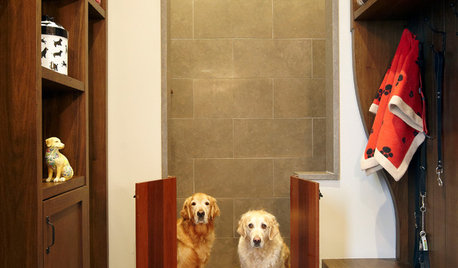odd kennel clubs
luvdogs
12 years ago
Related Stories

LIFESimple Pleasures: Get a Book Club Going
Kick back with friends and a thought-provoking read for an event that’s entertaining and educational all at once
Full Story
FURNITUREGather 'Round: The Perfect Conversation Area
Set up four club chairs and a round coffee table in den, library or living room
Full Story
LIFECould Techies Get a Floating Home Near California?
International companies would catch a big business break, and the apartments could be cool. But what are the odds of success? Weigh in here
Full Story
PETS15 Doggone-Good Tips for a Pet Washing Station
Turn a dreaded chore into an easier task with a handheld sprayer, an elevated sink or even a dedicated doggie tub
Full Story
FUN HOUZZWhat You Do When There’s No One Around
Ice cream binges, air guitar concerts, napping in the closet. Houzzers worldwide disclose their quirky secret indulgences
Full Story
KITCHEN DESIGNTwo-Cook Kitchens Have Smart Space Chops
Seven Houzz users show off their clever solutions to having two — but not too many — cooks in the kitchen
Full Story
BUDGET DECORATING13 Versatile Furniture Pieces That Grow With You
Build a collection of high-quality pieces that will work from that first solo rental to a long-term home
Full Story
HOUZZ TOURSMy Houzz: 1930s Outside, Midcentury Modern Inside
Saarinen and Noguchi furnishings in a traditional home? A Dallas decorator went for it, with beautiful results
Full Story
REMODELING GUIDES8 Remodeling Costs That Might Surprise You
Plan for these potential budget busters to keep a remodeling tab from escalating out of control
Full StorySponsored
Industry Leading Interior Designers & Decorators in Franklin County
More Discussions










bob_jamison
luvdogsOriginal Author
rivkadr
luvdogsOriginal Author
rivkadr
kittens
luvdogsOriginal Author
kittens
spedigrees z4VT
luvdogsOriginal Author
spedigrees z4VT
texasredhead